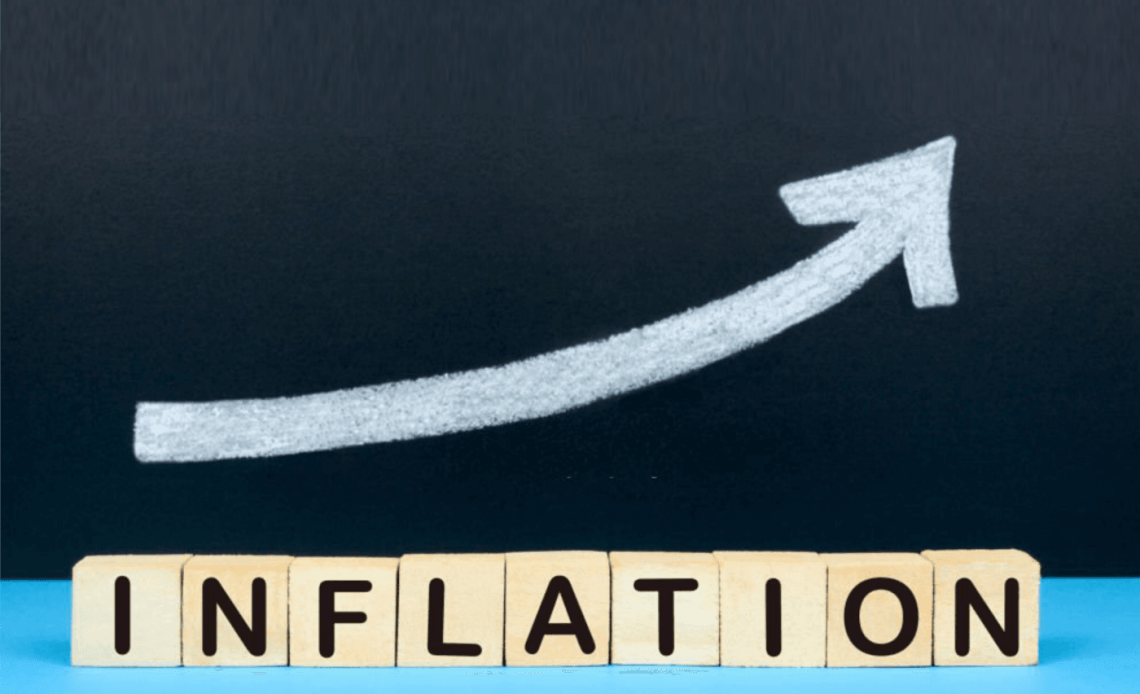Anyone who lives in Nigeria is no stranger to the biggest financial invader around-Inflation!
Its effect is everywhere, devaluing the naira and upsetting the price of anything you can think of.
Just recently, a visit to the pastry store down my street left me speechless when the attendant informed me that the price of my favourite doughnuts had doubled in less than two weeks.
According to her, a bag of flour that cost ₦6,000 last year was now ₦25,000 and the business couldn’t bear the brunt anymore. Who could blame them?
Like me, I bet you’ve also had your ‘speechless price encounters’ that left you uttering a silent prayer for Nigeria.
Well while you’re at it, it’s definitely time to be intentional and strategic about how you manage your money too.
With financial experts estimating inflation figures to be over 15%, the value of your cash loses its purchasing power in no time because you’ll have to spend more on the same goods and services. When inflation increases, purchasing power decreases. The value of ₦1,000 in January isn’t the same today.
But this shouldn’t throw you into panic mode. With the following tips, you can protect your finances and beat inflation at its own game:
- Articulate your financial goals: Having a purpose and a plan for anything helps you achieve them effectively. The same applies to your money. Having a goal will guide every financial decision you make. You will rightly budget and will stay motivated with your savings even when the pressure gets tough. So ask yourself what do I want to achieve by saving for the long term? Are you saving towards rent payment? A certificate course? Travel expenses?A wedding? A landed property? A car? Don’t just save because you know it’s wise to save. Give your money a specific, time-bounded assignment and stay challenged to achieve it.
- Prioritize your expenses: I’m might sound cliche, but if you’ll ever want to save some money at this time, it’s important to cut down needless purchases ruthlessly. Make a list of your income and expenses and track what you mostly spend on. Are there things you could do without? Are there purchases that make you break the budget? Sometimes, it might just be that you’re overboard with data or even food expenses. It’s the little things that add up.
A simple tip: If you notice that you tend to spend more than you bargained for, try handling cash instead. Have an estimate of what you’ll likely spend in a day and work with it. Go on a plastic diet at this time too. Don’t be tempted to swipe that card or make the USSD transfers. Thank me later:)
- Invest in yourself: This is a crucial time to invest/develop skill sets that apply to opportunities around. It’s always said that after a recession, new crops of billionaires will appear. Why? Because rather than wince and complain, they were committed to providing solutions to existing problems.
So, expand your earning potential by providing value and solutions to gaps around you. With the plethora of free courses on the internet, there’s absolutely no career or business skill you can’t learn online. You will be surprised at how much income you can rake in from just bankrolling your brilliance.
- Invest in Assets: An asset is anything that brings you income. While it’s essential to build your assets, the latter is grossly undervalued at this time because of the heavy financial commitments people have. So you’ll want to leverage this opportunity and invest for the long term.
You might not have the financial expertise to make this move, so it’s wise to speak to a financial professional who will take into consideration your age, stage and financial needs to determine the right asset class for you. It’s also key to spread your money across different classes. With this, you can reduce any likely risk that comes with your investments.
Worth mentioning is the need to have saved at least a year’s worth of expenses before venturing into investments. Saving means setting aside cash for future use. Investing means using cash to buy other assets that will yield profits or income in the long term.
- Use a high yields savings account: As earlier said, you cannot afford to have your cash on the sidelines because it will lose its purchasing power over time to inflation. For example, ₦1,000 worth of diesel in January 2022 does not amount to the same value today. So be strategic about how and where you save.
A smart tip is to pay yourself first by setting at least 20% of your income towards savings. It even gets easier by automating the process on your HerVest savings account while earning competitive returns that beat inflation at its own game. Read more about why automation is the secret to saving better!
Hope these tips were helpful. What other will you recommend to scale through these tough financial times? Will love to hear from you!
Follow @hervestng for more personal finance resources and insights. Get started on your journey to financial independence by creating a savings and investment plan on HerVest today. HerVest funds are managed by FBN Quest Trustees Limited and all savings are placed with VFD Microfinance Bank. VFD Bank is CBN regulated and NDIC insured.
Dara from HerVest.


